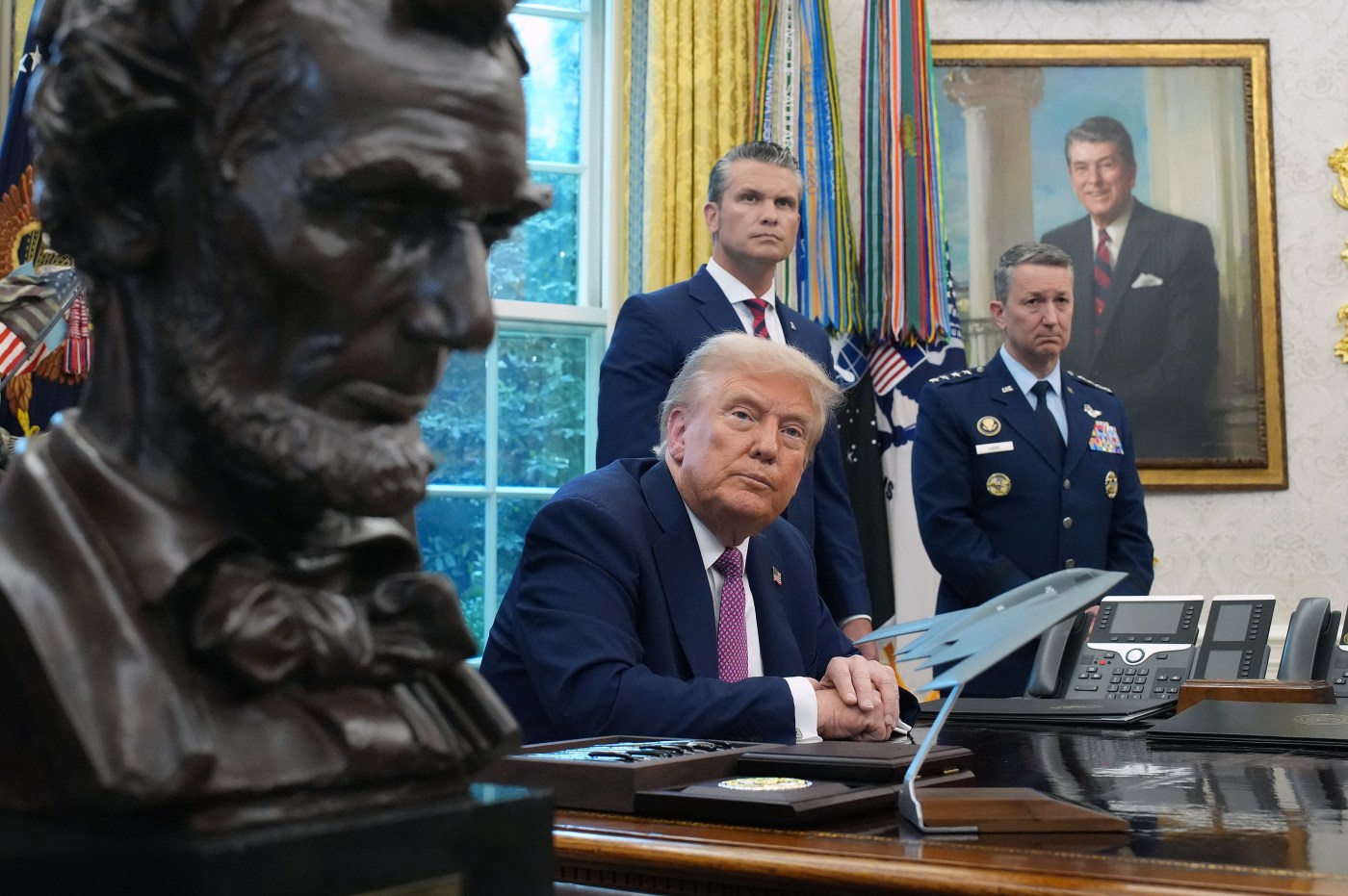Words matter.
They frame how we see ourselves as a people, how we imagine our place in history and how we justify the actions of government. That is why Donald Trump’s executive order to rename the Department of Defense the Department of War is more than a bureaucratic adjustment.
It is an abomination.
For more than 150 years after the founding of the republic, America lived with a Department of War. The name was blunt and honest. It signaled that war was the business of raising and directing armies, something to be done when unavoidable but not celebrated.
Related Articles
GOP barely defeats Senate effort to release Epstein files
Kamala Harris’ first digs from upcoming book: Here’s what Bay Area supporters, analysts think
Trump’s deportation plans result in 320,000 fewer immigrants and slower population growth, CBO says
Kamala Harris says it was reckless for Democrats to defer to Joe Biden on running again
Trump’s strike on alleged Venezuelan drug boat raises questions about his use of military power
In the aftermath of World War II, Congress chose a different path. With the National Security Act of 1947, later amended in 1949, the Department of War became the Department of Defense. The intent was clear: to signal that the United States had turned from global slaughter toward a future framed in terms of peace and collective security.
Of course, even that change contained a degree of self-deception.
Since 1947, America has been at war almost constantly—Korea, Vietnam, Iraq (twice), Afghanistan and numerous “defensive” interventions in Latin America, the Middle East and Africa. The Pentagon may have been called the Department of Defense, but the reality was one of endless campaigns and bloodshed. Still, the word “defense” mattered. It implied that force was a last resort, not the organizing principle of national life.
Trump’s decision to resurrect the name Department of War strips away that pretense. It announces to the world and to our own people that war is no longer reluctant but central to American identity. The change is not merely semantic. It is symbolic of a larger project: the elevation of militarism as the heart of American life.
What does it mean when “war” becomes our national creed? It means power will be measured not by the strength of our democracy or the resilience of our institutions, but by the parade of troops and the thunder of weapons. The balance between civilian authority and military might tilts ominously toward the latter.
This is no accident.
Trump has long glorified the image of raw force, parades of soldiers and the intimidation of adversaries both foreign and domestic. By rechristening the Department of Defense, he makes plain his intent to enshrine war not as a tool but as a philosophy. This is the language of authoritarianism, the drumbeat of empire, and it should strike terror into the heart of every American who cherishes liberty.
In the Bay Area, we remember leaders who chose peace. In Walnut Creek, banker-turned-congressman Pete Stark raised a peace sign above his bank to protest Vietnam. In Berkeley, Daniel Ellsberg exposed government lies by releasing the Pentagon Papers. In San Francisco, Rev. Cecil Williams made Glide Memorial Church a beacon for peace and justice. And in the South Bay, Dolores Huerta insisted that true peace requires economic dignity and labor rights.
The citizens of this nation must not shrug at the return of the Department of War.
We must call it what it is — a betrayal of the hope that peace might be our destiny. History teaches us that words are never mere labels. They are banners. To raise the banner of war is to tell the world who we are and who we intend to become. If we accept this change in silence, we will have already surrendered more than our name. We will have surrendered our soul.
Tom Debley is a retired East Bay journalist and public affairs officer. He lives in Walnut Creek.





